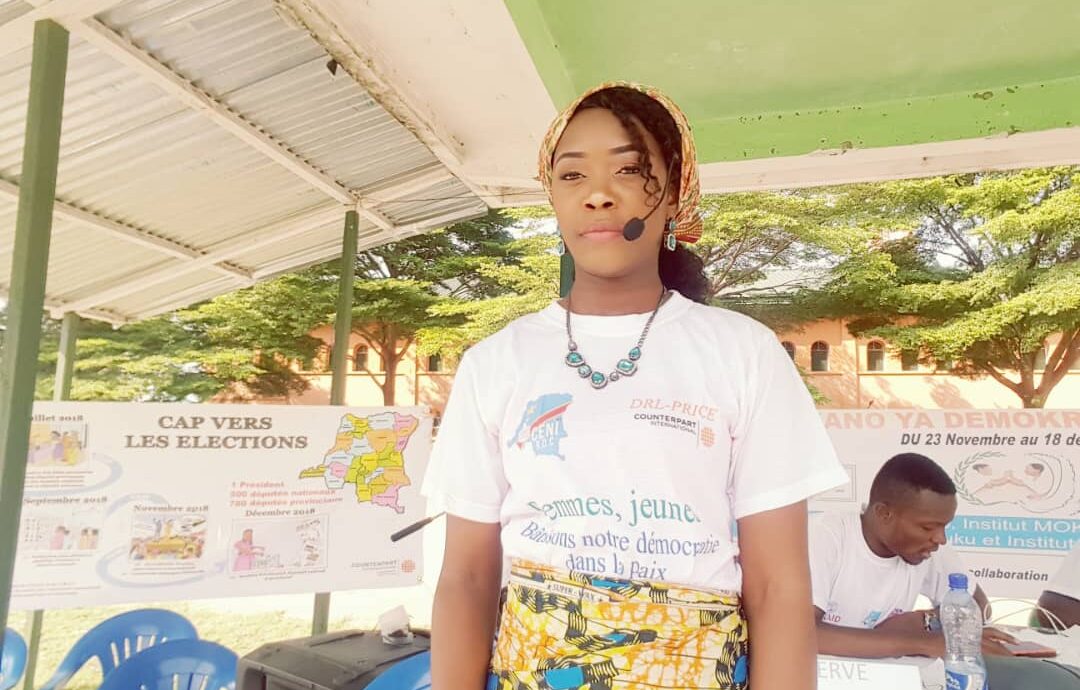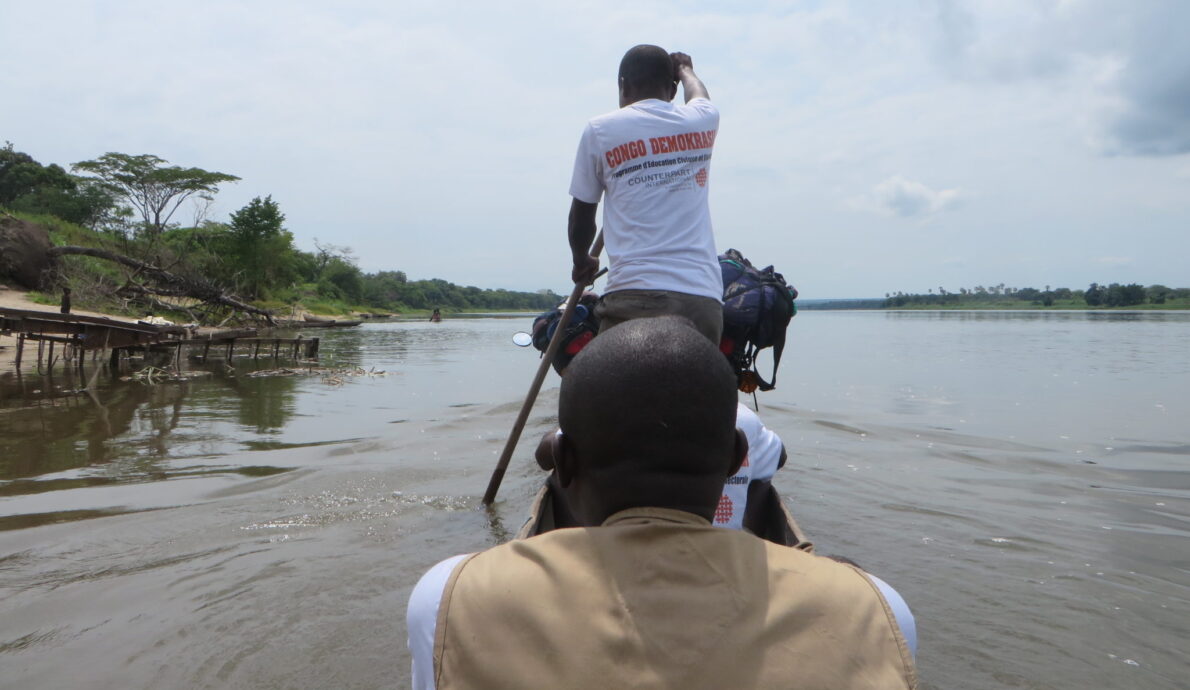Congo Demokrasia
In preparation for new elections, the country launched a voter registration process in 2016. After repeated delays, elections were postponed for December 2018. Counterpart supported democratic processes in the DRC through the USAID- and UKAID-funded Congo Demokrasia project. Both supported a more fair and transparent democracy by increasing voter participation, focusing specifically on increasing the civic engagement of women, youth, religious groups, and indigenous populations. We built the capacity of local organizations to deliver voter education programs that help citizens make informed voting decisions and participate actively and peacefully in elections.
With generous support from the U.S. Agency for International Development and the United Kingdom’s Department for International Development, Congo Demokrasia used a variety of tools and media to increase the civic engagement of a variety of diverse populations, including women, youth, rural populations, indigenous populations, and other marginalized groups.
A second program, Promoting Increased Civic Engagement in the Lead-up to Elections in the Democratic Republic of Congo (PRICE) program, built on the successes of Congo Demokrasia. Supported by the U.S. Department of State’s Bureau of Democracy, Human Rights, and Labor, PRICE supports a peaceful electoral process in high-risk areas of the country. Partnering with three influential civil society organizations, Counterpart designed voter education campaigns, citizen forums, and media campaigns about peaceful civic engagement, specifically targeting women and youth, who have been marginalized in past elections.
Counterpart has reached millions of citizens in the Democratic Republic of the Congo. Through our programs:
- An estimated 11,760,000 citizens were impacted through media campaigns discussing relevant milestones of the electoral cycle and conveying civic education messages;
- More than 5 million citizens have been reached through face-to-face sensitization campaigns, such as civic and voter education forums;
- 264 local civil society organizations have coordinated more than 28,000 activities to facilitate an increased understanding, particularly among marginalized populations, of peaceful civic engagement, the electoral process, and the right of citizens to participate in the civic space; and
- More than 800 civic and voter education facilitators learned to communicate the details of the electoral calendar and constraints from the new electoral law using the fiche thematique (fact sheet) in 2018.





